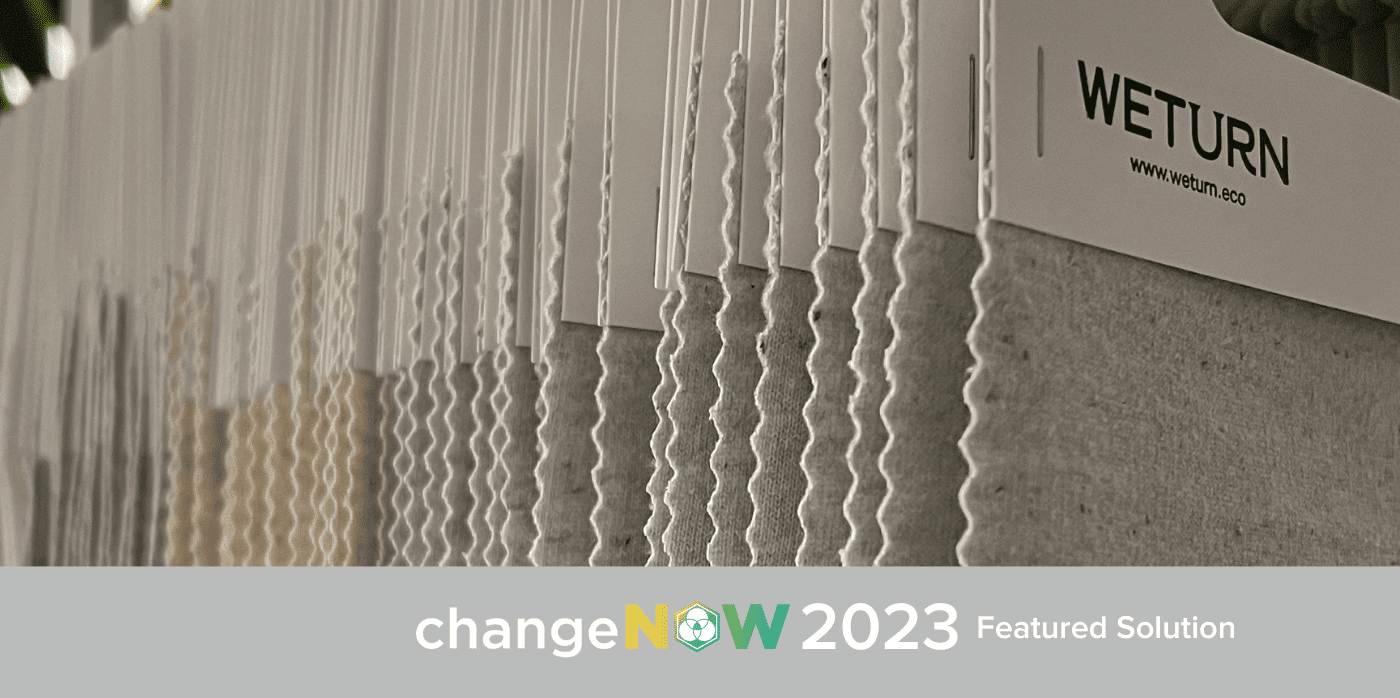Turning unused textiles into recycled yarn

Spotted: The United Nations Economic Commission for Europe (UNECE) says that a lack of ‘system enablers’ is the main challenge in scaling up supply chain transparency in the garment and footwear industries. The lack of those enablers presents a significant market opportunity in this area, as recent research found that 78 per cent of consumers would pay more for products that are produced locally or made from sustainable material. French company Weturn is improving this visibility for full circularity in textile production and use.
Weturn provides a complete recycling service that makes it possible for brands to offer consumers clear traceability of garments. Weturn tracks a company’s entire inventory, from finished products to production scraps, and builds a recycling process around future fabric needs. Weturn’s team picks up and transports unsold products and then recycles and spins them into new yarns that are used to create recycled raw material (RRM) fabrics.
It takes two to three months after pick-up of waste materials for a company to receive its recycled fabrics. Weturn’s service includes a full traceability report, and the company works with production partners in Spain, Italy, France, and Portugal to keep transport and other emissions to a minimum. The RRM fabrics are Global Recycled Standard certified, and part of every traceability report includes life cycle assessments covering water consumption, pollution, CO2 and other waste emissions.
While the complexity of the fashion industry can make it challenging to implement sustainable changes quickly, it also creates opportunity for exciting innovations. Springwise has spotted improvements in the industry’s sustainability in a number of different ways, including a cellulose powder that removes textile dyes from water, and 3D printed footwear that is 100 per cent recyclable.
Written By: Keely Khoury

